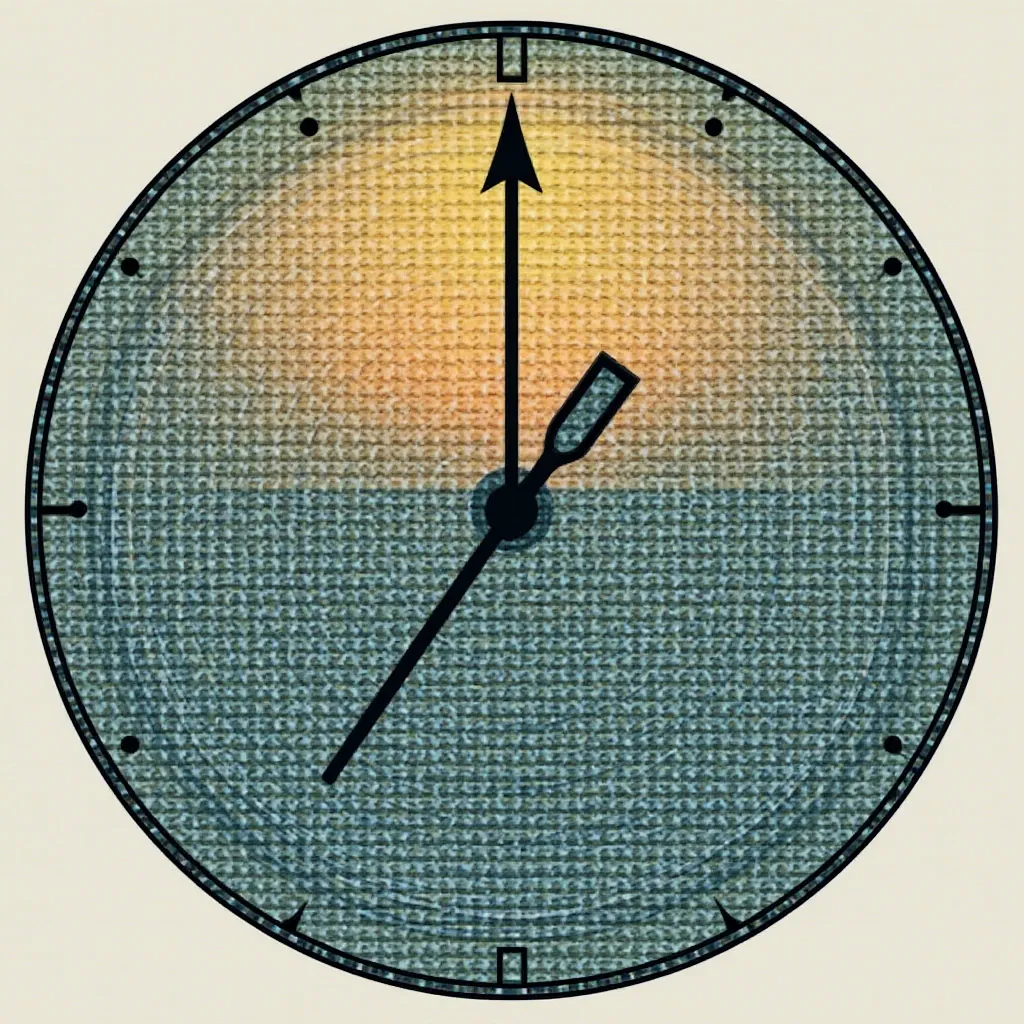How Your Body's Internal Clock Can Influence Arthritis Symptoms and What You Can Do About It
Discover the surprising link between your body's internal clock and arthritis symptoms! Learn how syncing with your circadian rhythms can reduce pain, improve sleep, and boost energy—without extra medications. Find out how this simple shift could change your arthritis journey!
Rheumatoid arthritis (RA) isn’t just about dealing with joint pain—it’s a chronic inflammatory condition that can truly impact your quality of life. From stiffness to swelling, the symptoms of RA can feel overwhelming. But here’s something you might not know: your body’s internal clock, or circadian rhythm, could be influencing when these symptoms are at their worst. Research is shedding light on how these rhythms can affect RA, and the good news is that understanding this connection could open doors to better ways of managing your arthritis.

What Are Circadian Rhythms?
Circadian rhythms are your body’s natural internal processes that follow a roughly 24-hour cycle. These rhythms regulate important bodily functions like sleep, hormone release, metabolism, and even your mood. It’s like an internal timekeeper, helping your body sync with day and night, ensuring you’re energized when it’s time to wake up and ready for rest when the sun sets.
In short, circadian rhythms govern everything from when you feel alert to when you feel sleepy, and they play a key role in your overall health.
The Link Between Circadian Rhythms and Arthritis
Here’s where things get interesting. Researchers have been studying how RA symptoms—pain, swelling, and stiffness—don’t just appear at random. They actually fluctuate throughout the day. And it turns out, circadian rhythms might be driving these fluctuations. For many people with RA, symptoms often worsen in the early morning hours. This led scientists to ask: Could the body’s internal clock have something to do with these changes?
Let’s dive into how circadian rhythms might be influencing your arthritis symptoms.
How Circadian Rhythms Impact RA Symptoms
A study by the University of Manchester looked closely at how circadian rhythms could affect rheumatoid arthritis, especially focusing on certain cells in the joints known as fibroblast-like synoviocytes (FLS). These cells play a big role in the inflammation and damage caused by RA.
Key Findings from the Research
- Daily Gene Expression: In healthy joints, FLS cells show a natural rhythm in their gene expression, influenced by the circadian clock. However, in arthritic joints, this rhythm is disrupted, leading to increased inflammation.
- Clock Gene Bmal1: The research found that removing an essential circadian clock gene called Bmal1 in FLS cells reduced arthritis development in mice. This deletion also wiped out the daily fluctuations in inflammation markers.
- Matrix Metalloproteinase 3 (MMP3): When Bmal1 was deleted, researchers observed elevated levels of MMP3, a protein linked to joint damage. This suggests that the circadian rhythm might help control factors that contribute to joint health.
Dr. Polly Downton, one of the researchers, shared her insight: "Our findings show how deeply intertwined circadian rhythms are with inflammation in RA. This opens up exciting possibilities for managing symptoms by targeting these rhythms."
How Tuning Into Your Body's Clock Can Help You Feel Better and Manage Arthritis?
- Reduced inflammation. When you align your activities and treatments with your body’s natural rhythms, you could help reduce the peak times when inflammation flares up. Imagine this: if you know your body’s inflammatory patterns, you could adjust your treatment to minimize pain at those high-risk times. This rhythm-based approach may help in reducing RA symptoms.
- Improved sleep quality. Quality sleep is a challenge for many with RA. A disrupted circadian rhythm can make sleep issues worse. By regulating your internal clock, you can enjoy better sleep, and as a result, your body might be better able to handle pain and fatigue associated with arthritis.
- Enhanced medication efficacy. Did you know that some medications work better when taken at specific times of the day? By understanding your circadian rhythms, you can optimize when to take your RA treatments, helping them work more effectively and reducing the likelihood of side effects. The research on rhythmic gene expression in FLS suggests that the timing of your treatment might just make all the difference.
- Better overall health. When your circadian rhythms are in sync, you’re not just helping your RA—you’re also strengthening your immune system, boosting your mood, and improving your overall health. That’s a win-win!
- Increased energy levels. Maintaining a healthy internal clock helps keep your energy levels steady throughout the day. For those with RA, this stability can make a huge difference, allowing you to stay active and tackle daily tasks with more vigor.
- New treatment opportunities. The discovery of circadian rhythms’ role in RA could lead to new treatment strategies. In the future, we might see therapies that target your body’s internal clock as part of your overall RA management plan.
As Professor David Bechtold points out: "Our research suggests that stabilizing circadian rhythms could complement current treatments, giving patients a more holistic approach to managing RA."
How to Start Regulating Your Circadian Rhythms
Now that we know how powerful circadian rhythms can be in managing RA, let’s explore what you can do to keep your body’s clock in check. The good news is that there are simple steps you can take.
1. Stick to a consistent sleep schedule. Consistency is key. Going to bed and waking up at the same time every day helps reinforce your internal clock. This regularity could make a big difference in managing your RA symptoms and improving your overall health.
2. Optimize your light exposure. Getting natural light exposure in the morning helps reset your circadian rhythm. Try to get outside early, especially if you work from home or spend a lot of time indoors. In the evening, avoid blue light from screens to signal your body that it’s time to wind down.
3. Eat regular meals. Try to eat at consistent times every day. A steady eating schedule helps maintain a healthy circadian rhythm. And don’t overeat late at night—this can interfere with your sleep and disrupt your body’s clock.
4. Stay active during the day. Physical activity, particularly in the morning or early afternoon, helps stabilize your circadian rhythm. It also helps with RA symptoms by keeping your joints mobile and reducing stiffness.
5. Manage stress. Chronic stress can throw off your body’s internal clock. Practices like meditation, yoga, and deep-breathing exercises can help keep your stress levels under control and maintain a balanced circadian rhythm.
Embracing the Clock in RA Treatment
The idea that circadian rhythms influence RA symptoms is a fascinating area of research that could transform the way we manage this condition. By taking small steps to regulate your internal clock, you might experience reduced symptoms, better sleep, and an overall improvement in health.
As research continues, incorporating circadian-friendly habits into your lifestyle could become a cornerstone of your RA management plan. Always consult with your healthcare provider before making major changes, but don’t overlook how simple adjustments to your daily routine could make a big impact on your health.
Dr. Julie Gibbs, a clinical immunologist, sums it up well: "The more we learn about the role of circadian rhythms in RA, the more we realize how important they are for effective, personalized treatment strategies. Harnessing the power of these rhythms could be a game-changer."
A Holistic Approach to Managing RA
By being mindful of your body’s natural rhythms, you can turn your internal clock into an ally. It’s not just about medications or therapies; it’s about syncing with your body’s natural cycles to optimize your health and well-being. Start small, stay consistent, and watch how your body responds to these changes.
Why Circadian Rhythms Matter for Arthritis?
Regulating your circadian rhythms can do more than just help with arthritis symptoms—it can also bring about a huge improvement in your overall health. From better sleep and reduced inflammation to better energy levels, the benefits are clear. By adopting a few circadian-friendly habits, you’re not just managing your arthritis; you’re investing in a healthier future.
If you’re ready to take control of your health, consider how understanding your internal clock might give you the edge in your fight against rheumatoid arthritis. Keep learning, keep experimenting with what works for you, and most importantly, keep moving forward.
Your body’s natural rhythm is there to help—you just need to listen.
How Circadian Rhythms Can Boost Your Overall Well-Being?
Optimizing your circadian rhythms isn’t just about managing RA; it’s about taking charge of your overall health. With regular sleep, controlled stress, and a consistent daily routine, you’ll experience improved mental clarity, better immune function, and a better quality of life. By tapping into the power of your internal clock, you can feel more energetic, balanced, and ready to take on the world.
Sources:


